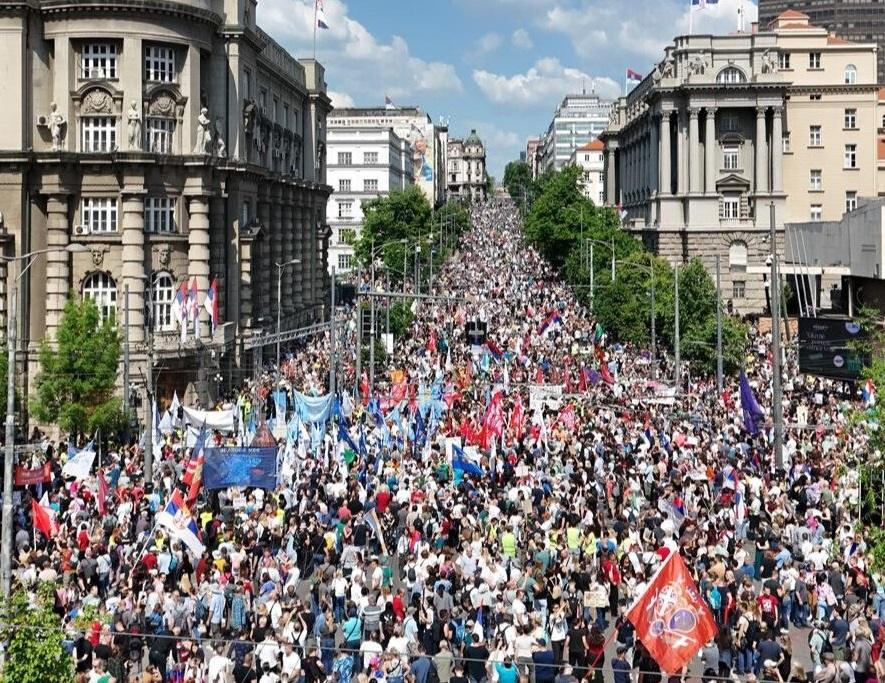The April Uprising turned the world’s gaze to Bulgaria

The year is 1876, the day April 20 – a memorable date in Bulgarian history. On it, our ancestors rise against an entire empire in the name of one thing – freedom. Although their actions do not directly lead to her, they remain one of the most striking examples of self-denial and courage in which the Bulgarians are capable of higher.
How do you get to the outbreak of the April Uprising?
The death of Vasil Levski in 1873 leads to a severe crisis in the revolutionary movement. The unsuccessful attempts to find a deputy of the Apostle, the endless disputes and the withdrawal of Lyuben Karavelov from the movement in 1874 lead to a split within the Bulgarian Revolutionary Central Committee /BRC /. Hristo Botev heads the Bulgarian Revolutionary Committee (BRC) in the situation of the declared bankruptcy of the Ottoman Empire and an uprising broke out in Bosnia and Herzegovina.
The brilliant poet cannot help but take advantage of another ignition of the Eastern issue. An uprising is thoughtfully, with the Bulgarian lands being divided into counties, headed by the apostles. However, the time for the organization turned out to be insufficient and the so -called Stara Zagora Uprising in September 1875 failed. Desperate for the failure, unjustly accused, Hristo Botev takes on the responsibility for the trouble and retires. A little later, the BRC dissolved itself, leaving the revolutionary movement without guidance.
Some of its members take into account the deepening of the Eastern crisis and proceed to prepare a new uprising in Bulgaria. They form the so -called. The Giurgiu Revolutionary Committee, consisting of young, determined officials with revolutionary experience, disappointed with the previous infertile efforts. In November-December 1875, in long meetings, they decided to proceed to organize a new universal uprising in the spring of next year. The Bulgarian lands are divided into revolutionary districts, led by apostles and their assistants.
Emily Strangford – the woman who helped thousands of Bulgarians after the April Uprising
In the first days of the new 1876, the designated apostles crossed the Danube and are engaged in the case, in the Bulgarian lands a lot of work awaits them, and many disappointments
From the very beginning, the planned Sofia district failed, the apostles were captured here or returned to Romania. Not the whole Bulgarian society perceives the revolutionary tactics. Some are scared of bloodshed, others do not believe that Bulgarians can free themselves. That is why in places the apostles use different propaganda techniques, such as the rumor that Serbia and Russia are just waiting for the uprising to declare war on Constantinople. The mass distribution acquires the claim that the alphabet spelling of the year 1876 meant « Turkia kenam falls ».
In the Turnovo Revolutionary District, the chief apostle Stefan Stambolov transferred the entire organizational burden of local figures who unfold vigorous activity in Gabrovsko, Sevlievo, Gornooryahovsko, Tryavna, but cannot solve the problem of the lack of weapons.
In the second county with the center of Sliven, there are controversy between the apostles themselves, and the local committees insist on Chetnik actions. There are also serious gaps in the third – Vratsa district, where the lack of weapons and coordination is decisive.
Hristo Botev: Between death and immortality
The apostles are most organized in the fourth district, mainly in the Rhodope and Middle Mountains. The men are conducting military training, preparing warehouses and enlarged camps in the mountains.
The General Assembly of Committees from the Fourth County, held in the Oborishte area on April 14, specifies the plan for the uprising and decides to explode on May 1.
Due to betrayal, Turkish wrists are trying to arrest the chairman of the Committee in Koprivshtitsa Todor Kableshkov and
On April 20, he announces the uprising that informs the surrounding villages with the famous « bloody letter »
The same day, Panagyurishte is also rebelled, and Georgi Benkovski formed his horse -drawn « cast », with which he or she goes around the settlements in the county and raises them to an uprising. Soon a regular Ottoman army and bashobozuk attack the rebel settlements, the first to fall Strelcha, Klisura, and after four days of battles – Panagyurishte. The fate of Batak is tragic, where the suppression of the uprising is accompanied by mass massacres. In Perushtitsa, Kocho Chistemenski and Spas Ginev kill their entire families so that they do not fall alive into the hands of the enemy.
When the « bloody letter » reaches Turnovo, the authorities have already taken action. However, here the uprising erupted, though not within the intended scale. Several troops have been formed, one of which is on pop chariton, leading a 9-day battle in the Dryanovo Monastery.
« Only Benkovski between us had a cap, and we were still with feces »
There is no uprising in the true sense in Sliven, the apostles make up a troop that is surrounded and broken after heavy fighting. Committees in Vrachanski are hesitating and ultimately decide to wait for the company of Hristo Botev.
Initially, it is envisaged that the company will be led by Panayot Hitov or Philip Totyu, but they refuse and the poet takes command of the 205 Chetniks
On May 16, they embark on the Austrian Radetsky ship, and soon they go down to the Bulgarian coast at Kozloduy, where the immortal march of Botev’s troop begins. The uprising in Vrachanski never exploded, the Chetniks are leading heavy fighting against their superior opponent.
On May 20, under unknown circumstances giving rise to various hypotheses, Hristo Botev falls killed. After the death of his voivode, the troop collapsed into groups that were destroyed one by one.
At the same time, the Botev troops through the Danube pass the company of Tanyo Stoyanov, which after a heroic march was destroyed.
With the defeat of the two, the April Uprising actually ends. It is a challenge to the High Gate and is suppressed with purposeful cruelty, even outside the rebellious areas. Nearly 80 settlements were burned, about 30,000 women, children, men were killed.
Atrocities do not remain hidden by the world public.
Eugene Skyler’s questionnaire with the participation of Jennius McGahan and Alexei Tserelev gave indisputable evidence of cruelty
They caused the angry and sympathetic reaction of the world. Relinks and subscriptions are organized in support of the Bulgarians, nearly 3000 articles are dedicated to tragic events, dozens of celebrities such as Dmitry Mendeleev, Lev Tolstoy, Giuseppe Garibaldi, William Gladstone, Victor Hugo, Oscar Wild, Charles Darwin raise their voice. In the end, the April Uprising and the public response accelerate the Russo-Turkish War and the Liberation of Bulgaria.










